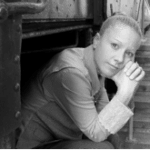Happy New Year 2020! As we recently tweeted, this year marks our 10th anniversary. PLEASE SAVE THE DATE for our 10th Annual CONFERENCE & AGM that will be divided into two sessions: a Reception & Showcase on Thursday, September 10th and our Conference & AGM on Friday, September 11th. Full details will be released in spring.
Our 9th conference in late October at Brock University, dedicated to the theme of The Italian-Canadian Experience in the Workplace was a rousing success. Featuring the workplace experiences of Italian-Canadian workers from the Niagara Region, with St. Catharines at its center, presentations on the first evening of proceedings included a glimpse into the heart-wrenching stories of the building of The WellandCanal by Arden Phair, retiredCurator of the St. Catharines Museum from his work as co-author of his work titled, Triumph and Tragedy: The Welland Ship Canal; as well as, dramatic stories of those who lost their lives in Canada, the seminal and groundbreaking collection titled the Italian Fallen Workers Memorial Project by Marino Toppan and Paola Breda and presented by Paola Breda. Led by David Sharron, Head of Archives & Special Collections at Brock University, the session shed enormous light on how to deal with the challenges and successes of collecting, working and managing archives and special collections. The dinner speaker was Donald Ziraldo, the Canadian winemaker and businessman; Member of the Order of Canada who donated his personal papers to the Special Collections, Brock University Library Archives. He commented on his immigrant family, farming, and nursery roots in the Niagara region and the events that led to his role as entrepreneur, to eventually evolve into one of the most important figures in Canadian wine history, credited with starting the first winery in Canada since Prohibition with his partner in winemaking, Karl Kaiser and, together, founding Inniskillin Winery in Niagara.
On Saturday, our second guest speaker and renowned photographer, Vincenzo Pietropaolo presented his collection The Italian Immigrant Experience Revealed, bringing to a close his two-week exhibition in the MIWSFPA Visual Art Gallery(VISA Gallery), which we all visited. As is ICAP’s usual practice, we heard updates on Models of Community Activity and Support from our board members, Caterina Sotiriadis (Winnipeg) on her team’s progress in collecting oral history recordings and collaborating with the Manitoba Archives; Nancy Marrelli (Montreal) on her latest work, at the Italian-Canadian Archives of Quebec, housed at the Casa d’Italia and assisted by he successful intern from Young Canada Works program; Antonella Fanella (Calgary) on moving forward with the oral history of Gina Attanasio Bloomer and Nancy Spina (P.E.I) on her work in establishing links with the local Italian Canadian Cultural Association (ICCA) established in 1973 and on the success of her Halifax grant on a project titled Italian-Canadian Women’s Voices, a collection of ten stories.
Eminent historian and Professor Emerita, Carmela Patrias, author of Jobs and Justice: Fighting Discrimination in Wartime Canada, 1939-1945, chaired the first afternoon session on Discrimination, Fatal Accidents and Labour Disputes. Matteo Brera, Post-doctoral Fellow presented documents from Il Lavoratore on Mediatizing Worker’Rights, Social Politics and Anti-Fascist Propaganda in Inter-War Canada (1936-1937) using fonds from Clara Thomas Archives,York University; and Gilberto Fernandes, Post-Doctoral Visitor, Robarts Centre for Canadian Studies, York University presented Episode 2, “The Jungle” on the Brandon Union Group and Strikesof 1960-1961 taken from his seminal documentaries and website archive titled City Builders, A History of Immigrant Construction Workers in Postwar Toronto.
A feature of the afternoon was a round table and book presentation on the most recent publication by Konrad Eisenbichler, one of ICAP’s board members, titled Forgotten Italians: Julian-DalmatianWriters and Artistsin Canada. This collection of articles on the Giuliano-Dalmata community in Canada is published by the University of Toronto Press (2019). After a historical introduction by Eisenbichler on the exile of this community from their native lands in Istria, Fiume/Rijeka, and Dalmatia and a chapter by Rosanna Turcinovich Giuricin on the dynamics between esuli and rimasti, the book presents eleven articles by scholars in Canada, the USA, Italy, and Croatia on various artists and writers from the Giuliano-Dalmata community in Canada such as Mario Duliani, Gianni Angelo Grohovaz, Diego Bastianutti, Caterina Edwards, Vittorio Fiorucci, and Silvia Pecota. For further information, see: https://utorontopress.com/ca/forgotten-italians-2
ICAP is also pleased to announce that ICAP members and collaborators, Marino Toppan and Paola Breda, co-authors of the Fallen Workers Memorial Project (Monumento ai Caduti; http://www.monumentoaicaduti.com/) have been awarded a gold medal by the Government of Italy, an award given for the first time ever outside Italy. The Medaglia d’Oro was presented to the Italian Fallen Workers Memorial Project and to Toppan and Breda for their ground-breaking archival research on Italian-Canadian immigration.
Last, but not least, ICAP wishes to remind our readers that a list of collaborations (research projects and the like) may be found on https://icap.ca/collaborations/. Examples of ICAP’s 2019 successes include: (1) materials now permanently housed at the Clara Thomas Archives at York University, such as the Angelo Principe collection of Italian-Canadian newspapers, just to name one; (2) funding from the federal government (DHCP) for Sarnia-Lampton Archive (ICAP Sarnia); (3) the private donation for the Gianna Antanasio Bloomer oral history (ICAP Calgary); (4) the new collaboration with Manitoba Provincial Archives to house the oral history project underway in Winnipeg (ICAP Manitoba); (5) the OMEKA website platform (hosted by the University of Guelph) to house all ICAP-related projects across Canada (e.g. student oral history projects, local communities’ projects ; teaching materials, and more); (6) the donation of Noelle Elia’s project, the Franco Grosso cart and materials, to the Canadian Museum of History.
















 Carrie-Ann Smith est titulaire d’une maîtrise en bibliothéconomie et sciences de l’information de l’Université Dalhousie à Halifax. Elle est devenue membre de la Pier 21 Society à l’été 1998 et occupe actuellement le poste de Device-President, Public Engagement Officer au Musée canadien de l’immigration du Quai 21. Mme Smith (ne vous fiez pas à son nom de famille) est un descendant de Federico et Mabli Artuso de San Martino di Lupari; elle a écrit une histoire sur sa vie de jeune italo-canadienne grandissant à Sault Ste. Marie, Ontario, paru dans Mamma Mia: Good Italian Girls Talk Back (ECW Press). L’objectif de Mme Smith de travailler au Musée, qui est d’aider à recueillir, préserver et faire connaître les souvenirs des immigrants qui sont venus au Canada, la motive également à contribuer au travail de l’ICAP.
Carrie-Ann Smith est titulaire d’une maîtrise en bibliothéconomie et sciences de l’information de l’Université Dalhousie à Halifax. Elle est devenue membre de la Pier 21 Society à l’été 1998 et occupe actuellement le poste de Device-President, Public Engagement Officer au Musée canadien de l’immigration du Quai 21. Mme Smith (ne vous fiez pas à son nom de famille) est un descendant de Federico et Mabli Artuso de San Martino di Lupari; elle a écrit une histoire sur sa vie de jeune italo-canadienne grandissant à Sault Ste. Marie, Ontario, paru dans Mamma Mia: Good Italian Girls Talk Back (ECW Press). L’objectif de Mme Smith de travailler au Musée, qui est d’aider à recueillir, préserver et faire connaître les souvenirs des immigrants qui sont venus au Canada, la motive également à contribuer au travail de l’ICAP. Sandra Parmegiani enseigne les études italiennes et européennes à l’Université de Guelph et a été présidente de la Société canadienne d’études italiennes (juin 2014 à juin 2017). Dans le passé, elle a enseigné la littérature et la langue italiennes au Trinity College de Dublin (Irlande) et à l’Université de Western Ontario. Ses recherches portent sur la littérature et la culture italiennes du XVIIIe siècle et de la période contemporaine. Depuis 2013, grâce à une bourse obtenue de Mitacs, elle encadre des travaux postdoctoraux sur la cartographie des ressources culturelles immatérielles par l’analyse de la culture de la lecture.
Sandra Parmegiani enseigne les études italiennes et européennes à l’Université de Guelph et a été présidente de la Société canadienne d’études italiennes (juin 2014 à juin 2017). Dans le passé, elle a enseigné la littérature et la langue italiennes au Trinity College de Dublin (Irlande) et à l’Université de Western Ontario. Ses recherches portent sur la littérature et la culture italiennes du XVIIIe siècle et de la période contemporaine. Depuis 2013, grâce à une bourse obtenue de Mitacs, elle encadre des travaux postdoctoraux sur la cartographie des ressources culturelles immatérielles par l’analyse de la culture de la lecture.
